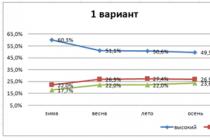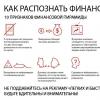Every year, the employee must rest, the Labor Code of the Russian Federation provides for a mandatory paid period in the form of vacation with a minimum number of 28 calendar days in the general case. However, in practice, a situation often arises when employees work at the enterprise for several years without going on vacation. Is this allowed? Will non-holiday leave be burned?
In 2017, non-vacation leave, according to the labor code, does not expire. Vacation days are carried over to future periods, for all non-vacated vacation days upon dismissal, the employer is obliged to pay monetary compensation.
The reason for working without a break for vacation may be related both to the desire of the employee himself and to the characteristics of the organization. labor process in company. Many employees do not want to take a vacation so as not to lose their salary, intending to receive monetary compensation for vacation pay for all days not taken off.
Compensation for unused vacation days is possible only upon dismissal. You can also replace money with additionally provided paid leave to the main one. If the employment contract is not terminated, then it will not be possible to replace the unused vacation for the past working year with compensation.
Is it necessary to go on vacation every year?
Article 122 of the Labor Code of the Russian Federation says that it is provided to each employee annually. For each working year, a minimum of 28 calendar days is required. In some cases, additional days are added -.
There are also provisions in Article 124 that leave for the past working year must be taken off no later than 12 months following its end. It turns out that the employee must rest at least once every 2 years. In practice, there are more and more situations when workers work for several years without going on vacation. Vacation days are cumulative. The question arises, will the accumulated non-vacation days of vacation burn out? Is it possible to receive monetary compensation for them, or is it possible to go on one long vacation with a duration equal to the total duration of all non-holiday vacations?
Will non-holiday leave be burned in 2017?
Labor Code in 2017 in this issue does not change, the worker must still go on vacation every year. If this does not happen, then it is necessary to focus on the letter of Rostrud 1921-6, according to which an employee who has not rested for several years still has the right to all non-scheduled vacation days. The vacation did not burn out before, and does not burn out in 2017 either. There are no changes in this matter.
If the employee quits, then he must be paid monetary compensation for all non-vacation days. If an employee long time did not rest, then the total number of unspent days can be tens and hundreds of days. For all these days, compensation is considered based on the average earnings for the 12 months before dismissal.
Of course, this violates the requirements of the labor code regarding the mandatory provision of annual paid leave, however, in the Labor Code of the Russian Federation, not a single paragraph contains the rule that non-vacation days for a period exceeding 2 working years should burn out. Until such a provision is introduced into the labor legislation, the employer is obliged to pay all unspent days.
The question of whether vacation days that they did not have time to take off burn out or not burn out is often asked by employees who have been working for the same employer for more than one year. Can a vacation burn out?
In Art. 114 of the Labor Code of the Russian Federation states that every working citizen has the right to annual paid leave. Its minimum duration is 28 calendar days per year. But there are professions and specialties, working in which you can count on receiving additional leave.
It often happens that citizens split up their holidays. One half cannot be less than 14 calendar days, and subsequent splitting - at least 1 day. And it may happen that a few days are "lost". Will these days burn or not?
An untimed vacation is a vacation that the employee did not take off on time. How many can accumulate?
The employee has the right to "save" vacation. At the same time, he must reschedule it to another time, but not more than 1 calendar year. Reasons for postponing annual leave can only be valid.
Transfer is possible:
- at the initiative of the employer;
- at the initiative of the worker.
In Art. 124 of the Labor Code of the Russian Federation indicates the reasons for postponing the vacation. An employer can initiate the postponement of an employee's vacation in the following cases:
- if there is urgent work that can only be done by a specialist who goes on vacation;
- reorganization of the employer;
- introduction of new technologies in production;
- temporary incapacity for work of the head, when the duties of the sick head are temporarily assigned to the employee who must go on vacation;
- urgent business trip;
- unscheduled inspections from higher organizations;
An employee may ask his employer to postpone his leave if:
- there were personal circumstances. Which circumstances are valid, the employer decides;
- employee illness.
In any case, it is necessary to draw up personnel papers stating that the vacation could be postponed. If there are no specified reasons, then the employee has no reason not to “walk” the vacation according to the schedule. Unused vacation from previous years can be carried over.
The employer does not have the right not to let his employee go on vacation for more than two years in a row, even if there are good reasons on both sides.
Does vacation for previous years expire in 2018? No! It can only be carried over to the next calendar year if available. good reason s.
Vacation compensation
A few years ago, until 2010, when Russia ratified the convention international organization labor (ILO). It was possible not to go on vacation for several years, but to receive annual monetary compensation. This was convenient for those families where only one family member works, and the second, for example, is on maternity leave. But now you can get compensation only for additional vacation days.
In connection with the ratification of this convention, “there was a rumor” that now all vacation days that were not taken off for one reason or another would be burned out. Many have written about it Russian newspapers who simply did not understand the text of the convention.
Conclusion: employees whose vacation is 28 calendar days have the right to take it off this or next year, but they cannot receive monetary compensation for it.
But you should not think that if an employee has “accumulated” several days of non-vacation leave from previous years, they will burn out for him. No! For such days, you can receive monetary compensation, but only when the employee leaves.
There is no provision for replacing annual leave with monetary compensation for employees whose leave is 28 days. The concept of "burning vacation" in the labor legislation of our country does not exist. Non-holiday days cannot burn. They will be compensated to the employee upon dismissal.
The situation is such that for many years of service at work it happens that the employee does not have time to take the annual paid vacation. The holiday period begins to accumulate and eventually disappear. Many employees are concerned about the question: what to do if there is an unused vacation and whether the unused vacation for the past years burns out.
According to article 114 of the Labor Code of the Russian Federation, each employer must provide an annual paid vacation to his employee. It does not matter: the employee went on maternity leave or upon dismissal - unspent leave does not burn out. According to Legislative framework Every employee has the right to accumulate vacation pay. How does the process of restoring non-vacation leave take place, what is provided upon dismissal: unrealized day off or compensation, more in the article.

Can an unscheduled vacation burn out?
According to the Vacation Regulations, each employee is entitled to receive 28 days off annually. Holidays can be divided into periods if desired. The main thing is that the first part should be at least 14 days. The second part can be issued up to one day. If an employee constantly goes to annual leave- the situation consists in the fact that you just need to know how the application is drawn up. If the employee has a non-scheduled day off for the past years, the situation is more complicated.
First of all, the employer must notify his wards not only of the opportunity to go on annual holidays, but also give them a chance to choose a period of rest that suits them. The employee, in turn, must know on what date he has a day off this year. If for some reason he could not go on an annual paid vacation, the employer must act as a guarantor that the unused vacation will not disappear anywhere, but will accumulate in the vacation pay schedule.
A non-holiday long day off means that the worker could not arrange the holidays on time and they automatically moved to the next year. The situation when executive wants to reschedule holiday pay, must have good reason. You can transfer the annual paid long day off:
- By decision of the employee, if the terms of the Employment Contract do not block such an opportunity;
- At the discretion of the employer.
The list of reasons why an employer may not let a ward go on vacation, according to Article 124 of the Labor Code of the Russian Federation, includes:
- Performing urgent work that only this specialist can do;
- heavy financial condition firms: bankruptcy, crisis;
- Insufficient number of people who could replace the outgoing;
- For the period of rest, the employee performs part of the duties imposed on him to conduct production.
You need to know that even in such situations, unpaid vacation pay for the past years according to the Labor Code of the Russian Federation cannot burn out. Regardless of what position the ward has, whether he goes on maternity leave or decided to take vacation pay upon dismissal, according to the Law, it is possible to accumulate holidays and use them in the next working year.
Does unused vacation from previous years expire?
If for some reason the employee did not use all or part of the vacation, the vacation automatically rolls over to the next working year. Unused and unused vacation does not burn out. True, you can accumulate vacation pay for a short time.
You can transfer non-holiday vacations for previous years no later than one year. Other calendar periods will not be taken into account. Unused holidays can be issued in the current or next year. If this is not done, they will not burn out, but the employer will not be able to provide them to the worker. In such a situation, it is better to try to exchange non-holiday days for past years for compensation.
Upon dismissal, does unused vacation burn out or not in 2018?
Unused vacation or part of the vacation upon dismissal does not burn out, in accordance with the Labor Code of the Russian Federation. Upon dismissal, the employer, according to the vacation schedule, summarizes the entire non-vacation period. Therefore, the employee has the opportunity to take a well-deserved rest before leaving the position.

There are situations when a worker wants to receive monetary compensation instead of annual vacation pay. In this case, the employee should know that if the non-scheduled vacation does not burn out, this does not mean that his constant accumulation over the past years can be exchanged for monetary compensation. The law states: compensation is provided only to those categories of citizens who have holidays for more than 28 days and those who decide to terminate the employment contract. That is, people who have an extended vacation period and who want to quit can receive money.
IN judicial practice it happens that the employer, in fraudulent ways, can provide the employee with a reduced amount of vacation pay. If such illegal actions are proved, according to the Law, the head is brought to administrative responsibility.
Does vacation expire when you go on maternity leave?
According to the Laws and the Labor Code of the Russian Federation, non-holiday rest before going on maternity leave does not burn out. A pregnant woman may:
- Write an application for the use of the non-holiday part of the vacation and go on maternity leave ahead of schedule;
- An employee can extend the maternity period due to unused days off.
Even if a pregnant woman did not have time to apply for a vacation before the decree. She can come out on the due weekend later. The accumulative part of vacation pay does not burn out even with a long stay on maternity leave.
Unused vacation - changes in the Labor Code of the Russian Federation from January 1, 2018
The rules for processing unused vacations have been changed since January 1, 2018. You need to know that if you write an application, unrealized vacation pay can be received before dismissal. In this case, the employer must pay compensation for the entire period of non-holiday holidays. Even if the term of the employment contract has ended, the annual vacation period does not expire, but is provided regardless of whether it goes beyond the conditions or not.
Notify the employer of the desire to take an annual day off no earlier than two weeks in advance. During this time, until the start of rest upon dismissal, the employee can change his mind and take back the application for leaving the workplace.
Vacation travel in the Far North 2018
According to the local legislation of companies that are located in the Far North and in places with similar…
Vacation before the decree according to the Labor Code 2018
Almost every pregnant woman, before issuing a decree, thinks about what to do with ...
How to get compensation for unused vacation without dismissal?
Each employee has the right to receive leave, but it is not always possible to use it. Then you can...
How to calculate compensation for unused vacation upon dismissal in 2018 - payment terms
When leaving, a person has the right to receive certain compensations. For example, if a company goes into liquidation, then for each…
Report on the vacation of a soldier 2018 - sample
All people who are under the status of the military or are serving in Russian army, they have a right…
The Labor Code of the Russian Federation contains a provision on basic paid leave.
Every worker has the right not to attend work for a certain number of days during the year. But for a number of reasons, it is not always possible for an employee to do this. An employee who has been preserved for 12 months can take a walk next year. The reasons for this vary. Sometimes employees themselves ignore their right to rest at home. But the only way to get compensation is to statutory cases.
The right to rest granted every year is enshrined in the article. The duration of this period is 28 days. There are categories of citizens for whom additional rest is required. For certain specialties, professions, this is also possible. The employee has the right to divide the rest time into parts. In this case, the condition must be met that one half must be at least 14 days.
The remaining time can be divided as you like, choosing during the year the time spent at home at least 2 days. If, nevertheless, a few days were saved, and they were not used, will they be lost? Or will you be able to use the unfinished vacation later? Are there cases when unused vacation burns out?
What is meant by unused vacation?
The so-called non-holiday vacation is the one due to employees for 12 months, which could not be used for some reason. Since some employees have the right to be absent from the workplace not for 28 days, but longer, since they have additional or extended rest, it is not at all a fact that during the year they will choose all the time allotted to them. It must be remembered that all accumulated days can only be used within the next 12 months, and only. After another 365 days, this right will no longer be exercised. Employers cannot keep a person in the workplace without rest for more than two years. But where will the unused vacation days go, moreover, if there are quite a lot of them? They remain and do not go anywhere, but it will no longer be possible to use them the way you want.
In general, unused vacation can be successfully used over the next 12 months. And then you will have to forget about it until the day of dismissal. After this day comes, the person will receive compensation for all the accumulated early days. What are the reasons that non-holiday vacations may appear? Of course, only good reasons will force the worker to remain at the workplace without rest due to him. Transfer to another year is possible:
- thanks to ;
- thanks to the initiative of the worker.

The reasons for the employee's refusal to take a vacation are recorded in personnel papers, because if there are no serious reasons to stay at work, then there is no reason to miss the next vacation. If the employee himself asks the employer to postpone the due days of inactivity to the next year, then the reasons may be as follows:
- family circumstances;
- deterioration in the employee's health.
If you have not taken the prescribed days off for the past time, then perhaps this is due to the initiative of the employer, caused by such reasons:
- the impossibility of shifting the work of this employee to someone else;
- reorganization of the employer;
- checks in the organization;
- performance of managerial duties.
The reasons given above are enshrined in.
Are past vacations cancelled?
In some cases, it is in the hands of the employer that a valuable employee does not rest at all.
But for two years in a row it is impossible. If people work in hazardous industries or they are not yet 18 years old, then they are in without fail should be able to be at home for a certain amount of time every 12 months. These provisions are enshrined in Art. 124 of the Labor Code of the Russian Federation.
To understand whether unused vacation burns out, you need to take a closer look at Articles 124, 122, and 114 of the Labor Code of the Russian Federation. It says that if a worker has unused vacation for previous periods, then the right to put him into business is preserved, cannot be considered lost.

Law No. 139-FZ of July 1, 2010 ratified ILO Convention No. 132. Art. 9 of the Convention states that part of the annual rest, at least 2 weeks, must be taken off during the working year, the remaining time is spent on walking for 18 months. There were experts who, based on this, came to the conclusion that after 18 months the remaining days disappear. Other experts believe that the unused vacation, which was mentioned in Art. 9 Clearly spelled out in Art. 3 of the Convention that a person is entitled to the minimum prescribed rest every year. Therefore, due to the existing Convention in force, there is no need to worry that non-vacation leave is burned out.
Rostrud specialists were asked if unused vacation could burn out and they answered no. They were also interested in whether there is a way out of the situation if the employer constantly refuses annual rest, referring to the fact that there is no one to work and whether the vacation for the past years burns out. The employee has the right to consume all the accumulated days of rest from the employer for all periods of service with him. Employees took their days off for previous periods as part of the schedule for the next 12 months, or a special agreement was drawn up with the employer, which indicated exactly how the missing days could be used.
Replacing vacation with cash compensation
Article 126 of the Labor Code of the Russian Federation clearly spells out cases when an employee can instead of a well-deserved time at home. A certain number of unused vacation days are replaced with money. At the written request of the worker, compensation may be paid for part of the rest exceeding 28 days. Both in 2016 and in 2017, the days accumulated earlier remain at the disposal of the worker, they are not taken away. Unused holidays especially useful to a person when calculating while leaving work. The longer the employee worked without rest, the more money he will receive upon dismissal. Do not worry about whether dozens or hundreds of accumulated days of rest burn out. Everything will be compensated to the person in the calculation. Another question is how the debt is paid. Must be taken into account for the last 12 months of work before dismissal.

All employees who carry out their activities under an employment contract are entitled to annual paid leave. Its payment is carried out on the basis of regulatory documents regulated by Russian law.
What is vacation and who can use it
Annual leave is a paid break from labor activity, which can be taken by every employee of the organization to restore strength and performance. During this period, he retains the position and the average salary.
exercise the right labor leave can be persons who are in permanent, temporary, seasonal work. As well as people who carry out their production activities part-time, at home, remotely, and so on. The vacation period cannot be canceled or shortened. The rule does not apply to employees with civil labor contracts, such as work contracts, assignments.
Duration
How many days leave will be granted to the employee while maintaining the place and average earnings, is specified in the organization's employment contract or is decided on an individual basis in compliance with all labor laws. Typically, the duration of such a period is twenty-eight calendar days.
As a rule, the procedure for granting vacations allows each employee of the organization to take advantage of annual paid days of rest. This time may be extended in accordance with the Labor Code and company regulations.
Getting extra rest days

Additional leave, at which the place and the average monthly payment are retained, is granted to persons:
- involved in the field of dangerous and harmful labor activity;
- with a special specific nature of work;
- with an irregular day;
- working in the Far North or in places with difficult working conditions.
The organization, by virtue of its capabilities - both financial and production - can itself regulate the procedure for providing additional days of rest, even if this is not provided for by labor legislation.
Additional leave is granted to persons working in hazardous and hazardous industries. It's underground and mountain activity, zones of radioactive contamination and other places that adversely affect human health due to the impact of a number of chemical, physical, biological and other factors.
Employees with irregular overtime are also entitled to an additional vacation period, the duration of which is determined by the company's collective agreement. Such rest should not be less than three days. In case of non-provision of additional leave, processing is considered overtime work and paid accordingly.
If funding for irregular workers comes from federal budget, then the grounds for temporary suspension from work are prescribed by the legislation of the Russian Federation. If payment is made local authority self-government, then the conditions and norms are regulated by the regional authorities.
Paid leave - both basic and additional - is calculated in calendar days. Has no time limits. Holidays and non-working days are not included in the vacation period and are not paid.
When determining total duration period of temporary incapacity for work, additional days of rest are added to the days of the main one.
About work experience
The calculation of the leave provided by the organization is calculated based on a number of factors. This:
- The period of labor activity in production.
- Disabled time of an employee, when he retains his position and annual leave.
- Forced absenteeism upon dismissal or suspension from work, which occurred illegally, with a future
- Other situations when the employee did not appear at work, but these “downtimes” are regulated by the collective and employment contract or normative documents organizations.
The procedure for granting vacations does not include in the length of service the time when the employee was absent from work without good reason. This also applies to cases of removal from production process under article 76 of the Labor Code of the Russian Federation.
Persons who temporarily do not fulfill their duties in connection with caring for a child are not entitled to labor leave. Annual paid rest days are not allowed for employees who have gone to certain period without content. Especially if its duration was more than seven working days.
Additional days of rest are provided for employees working in hazardous and hazardous industries.
The procedure for granting holidays

According to the legislation of the Russian Federation, an annual rest period is required for each employee of the organization. In the first year of employment, the employee is entitled to temporary exemption from the production process only after six months of continuous work experience. If the employer does not object, the leave may be granted earlier.
Until the expiration of the six-month period, the right to temporary suspension from work is granted to women before going on maternity leave or immediately after it. Employees are eligible for this benefit. age category up to eighteen years of age and people who have adopted children under the age of 3 months, as well as in other situations provided for by law.
Second another vacation the employee takes according to the vacation schedule, which is approved by the organization.
Priority

The annual vacation period is provided in accordance with the schedule of the organization, which is approved by the head of the enterprise, the trade union 14 days before the start of the new calendar year. It includes all employees of the company, including the employer. The worker is notified of the temporary suspension from work, in accordance with the legislation of the Russian Federation, two weeks in advance.
The procedure for granting vacations allows you to take paid rest days at any time:
- Pregnant women.
- Husband while his wife is on maternity leave.
- Persons who have adopted a child under the age of 3 months.
- Employees under the age of eighteen.
- People recalled from labor leave.
- Parents, guardians or guardians raising a disabled child under the age of eighteen.
- Servicemen.
- For the wives of the military, along with the leave of the husband of the military.
- Women with two or more children under the age of twelve.
- Single men raising two or more children under the age of twelve.
- Honorary donors of Russia.
- Heroes of Labor, the Soviet Union and Russia, as well as holders of the Order of Glory.
If the employer denies the right to take annual leave at a convenient time, then self-care in the above cases will not be considered absenteeism.
Extension or rescheduling
Labor leave may be extended or rescheduled for another period:
- In case of temporary incapacity for work of an employee.
- If the employee performed state duties during the planned vacation.
- When an employee of the organization did not receive payment for the due days of rest or was not warned fourteen days in advance about the period of temporary disability.
- If the absence of an employee in the current year will adversely affect production activities organizations. In this case, it is allowed to transfer days of paid rest to the next year, but the vacation must be used during the next year.
It is considered a violation of Russian law to refuse to provide an employee with paid leave for two consecutive years, as well as the failure to provide paid leave to persons under the age of eighteen and employees whose activities are associated with dangerous and harmful species activities.
Dividing the vacation period into parts
It is allowed to divide the labor leave into parts by mutual agreement of the parties. Here, at least one part of the annual period of incapacity for work must be at least two weeks.
Feedback and financial compensation
The recall of an employee from the period of annual rest is carried out only with his consent. Unused vacation days are provided at a convenient time for the employee during the current year. The unused portion may be added to the next paid suspension period.
An employee cannot be recalled from vacation if his age has not reached eighteen years; women expecting a baby; persons whose activities are associated with harmful and dangerous working conditions.
Worker instead vacation days, which are not included in the main 28 calendar days, can use monetary compensation.
Expectant mothers, employees under 18 years of age and persons whose labor activity is especially difficult, harmful and dangerous, are not provided with material payment instead of vacation.
Vacation period for pregnancy and childbirth

The disability certificate is a sufficient reason to receive maternity leave for 70 calendar days before childbirth (if a woman expects more than one child, then the period of release from work is extended to 84) and after delivery - for 70 days. In difficult childbirth - for 86 calendar days. If two or more children were born - for 110 days. Vacation calculation is accompanied by payment social benefit, the size of which is determined by the legislation of the Russian Federation.
The rest period associated with pregnancy and childbirth is accrued in total. It is provided regardless of the number of calendar days used by a woman before this period.
Leave for students

Educational leave is provided to people for training by the employer or self-study under state accredited bachelor's, specialist's, master's degree programs in part-time and part-time education. The organization gives an additional rest period while maintaining the average wages for certification in the first and second year for up to forty calendar days. In subsequent courses - up to 50.
Unpaid leave is also available:
- Persons admitted to the entrance examinations.
- Employees who are students of the preparatory departments of higher educational institutions for final certification.
- For people to pass attestation for bachelor's, specialist's and master's programs in full-time.
- Employees mastering state distance learning programs for accreditation. In addition, once a academic year the organization pays for travel to educational institution and back.
- Persons who continue their education in bachelor's, specialist's or master's programs in part-time and part-time forms of education, for up to ten months at the beginning of the state final certification.
The working week here is reduced by seven hours. The period of release from work is paid by 50 percent of the average wage at the place of employment, but not less than minimum size wages. By mutual agreement, working time is reduced by one working day or its duration is shortened.
Guarantees and compensations for employees who study and work at the same time, but do not have state accreditation for bachelor's, specialist's or master's programs, are regulated by collective and labor agreements.















